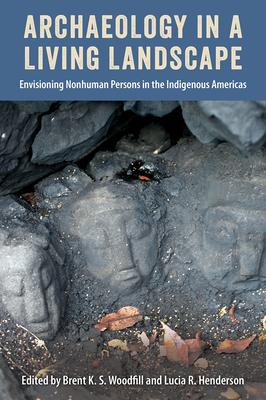Recognizing and incorporating Indigenous knowledge systems in archaeological studies of the Americas
This book
explores the diverse range of other-than-human persons that inhabited
and affected the landscape of the ancient Americas. These case studies
acknowledge what is often dismissed by Western scholars: that Indigenous
communities have long recognized degrees of personhood in mountains,
volcanoes, caves, springs, rivers, rocks, plants, archaeological sites,
trees, and animals and that this worldview should be taken seriously in
archaeological investigations, community relations, and interpretations.
In Archaeology in a Living Landscape,
contributors examine the role of nonhuman agents in the ancient world,
from land management and tenure to economics, politics, migration,
pilgrimage, trade routes, conquest, ethics, and philosophy. Chapters
describe Tlingit cosmology, lightning beings and magnetism in the
Minnesota River Region, linguistic approaches to animacy in the United
States Southeast, nonhuman persons in the ancient Maya economy, and
Lacandon Maya ritual landscapes. They investigate the role of quarries
in the building of Inka huacas (sacred spaces or objects), clay
procurement and Andean apus (powerful mountains), Amazonian animism in
polychrome ceramics, and the built and unbuilt landscape of the Mapuche.
An epilogue by Dakota elder James Rock highlights how
Western academic discourse often diverges from the viewpoints of
Indigenous subjects.
The contributors to this volume use
language accessible to readers of diverse backgrounds. They focus on the
centrality of nonhuman persons in the lives of Indigenous communities,
working to move away from Western biases to embrace and integrate
Indigenous belief frameworks in their studies. Archaeology in a Living Landscape highlights the value of Indigenous knowledge systems not just as archaeological evidence but as a body of theory.
Contributors: Steve J. Langdon Lisa J. Lucero Alexei
Vranich James Rock Eleanor Harrison-Buck Lucia R. Henderson Nicola
Sharratt Patrick Ryan Williams Bill Sillar Brent K.S. Woodfill Jacob J.
Sauer Margaret Spivey-Faulkner Sigrid Arnott Dianne Desrosiers Joshua
Feinberg David Maki Carolyn Dean Alice Balsanelli Joel W. Palka A.C.
Roosevelt Dennis Ogburn
